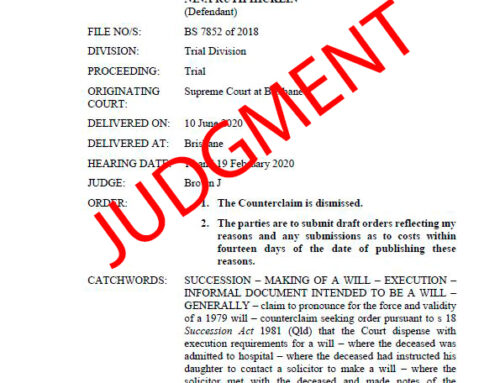We at Cooke & Hutchinson Lawyers have focused a great deal the last couple of months on elder abuse and this is because of the increase in the number of cases we have seen in a very short timeframe. So when we see articles in a newspaper or a magazine which encourages people to insert “conflict of interest clauses” in their enduring power of attorney documents, we find it alarming.
Firstly, what does a conflict of interest clause imply. Under the Power of Attorney Act a person who acts as someone else’s attorney is not allowed to take money from the person who gave the power to the attorney (being the principal) when they are acting as attorney and if they do, there is an automatic conflict of interest. This is a very important safety mechanism of an enduring power of attorney document as the money of the principal should only be used to look after them while they are alive. The truth of the matter is, you have worked hard for that money and it should be there to look after you for the rest of your life.
If a conflict of interest clause gets inserted in an enduring power of attorney document it allows the attorney to use the money of the principal on themselves (which just makes financial elder abuse even easier). The argument we have seen for these type of clauses includes, what if the principal gets terminally ill and superannuation needs to be withdrawn using the enduring power of attorney to assist the principal. This argument is futile because the attorney is able to do this, as long as the funds from the superannuation is deposited in the principal’s bank account, where it should be to look after the principal.
Another common argument for conflict of interest clauses is, what if the principal wants to gift an asset to his or her attorney (for example children) to ensure that they retain their pension. It is important to note that when you gift an asset away, the assets test used for aged pension will still count the gifted assets as yours for up to three years, so you will most likely not end up with the desired effect.
There is an exception to this rule which we apply most of the time and that is when a married couple have built most of their assets together and they would like their spouse when acting as attorney to use their matrimonial assets to look after both of them.
At the end of the day it important to remember that this is one of the most important documents you will ever sign as you gift an attorney the power to deal with all of your assets. If you require a lawyer to assist you with your enduring power of attorney, please contact us as we will be able to provide you with a fixed price for the work required.





